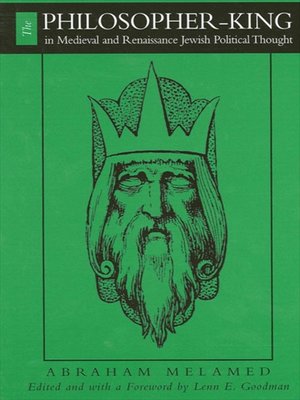The Philosopher-King in Medieval and Renaissance Jewish Political Thought
ebook ∣ SUNY series in Jewish Philosophy
By Abraham Melamed

Sign up to save your library
With an OverDrive account, you can save your favorite libraries for at-a-glance information about availability. Find out more about OverDrive accounts.
Find this title in Libby, the library reading app by OverDrive.



Search for a digital library with this title
Title found at these libraries:
| Loading... |
This original treatment of medieval and Renaissance Jewish thinkers expands the scope of Jewish philosophy and adds new depth to our understanding of Jewish culture of the period. While medieval Christian political philosophy was based on Aristotle's Politics, Muslim and Jewish philosophy adhered to the Platonic tradition. In this book, Abraham Melamed explores a major aspect of this tradition—the theory of the philosopher-king—as it manifested itself in medieval Jewish political philosophy, tracing the theory's emergence in Jewish thought as well as its patterns of transmittal, adaptation, and absorption. The Maimonidean encounter with the theory, via al-Farabi, is also examined, as is its influence upon later scholars such as Felaquera, ibn Latif, Narboni, Shemtov ibn Shemtov, Polkar, Alemanno, Abarbanel, and others. Also discussed is the influence of Averroe's commentary on Plato's Republic, and the Machiavellian rejection of the theory of the philosopher-king and its influence upon early modern Jewish scholars, such as Simone Luzzatto and Spinoza, who rejected it in favor of a so-called "Republican" attitude.






